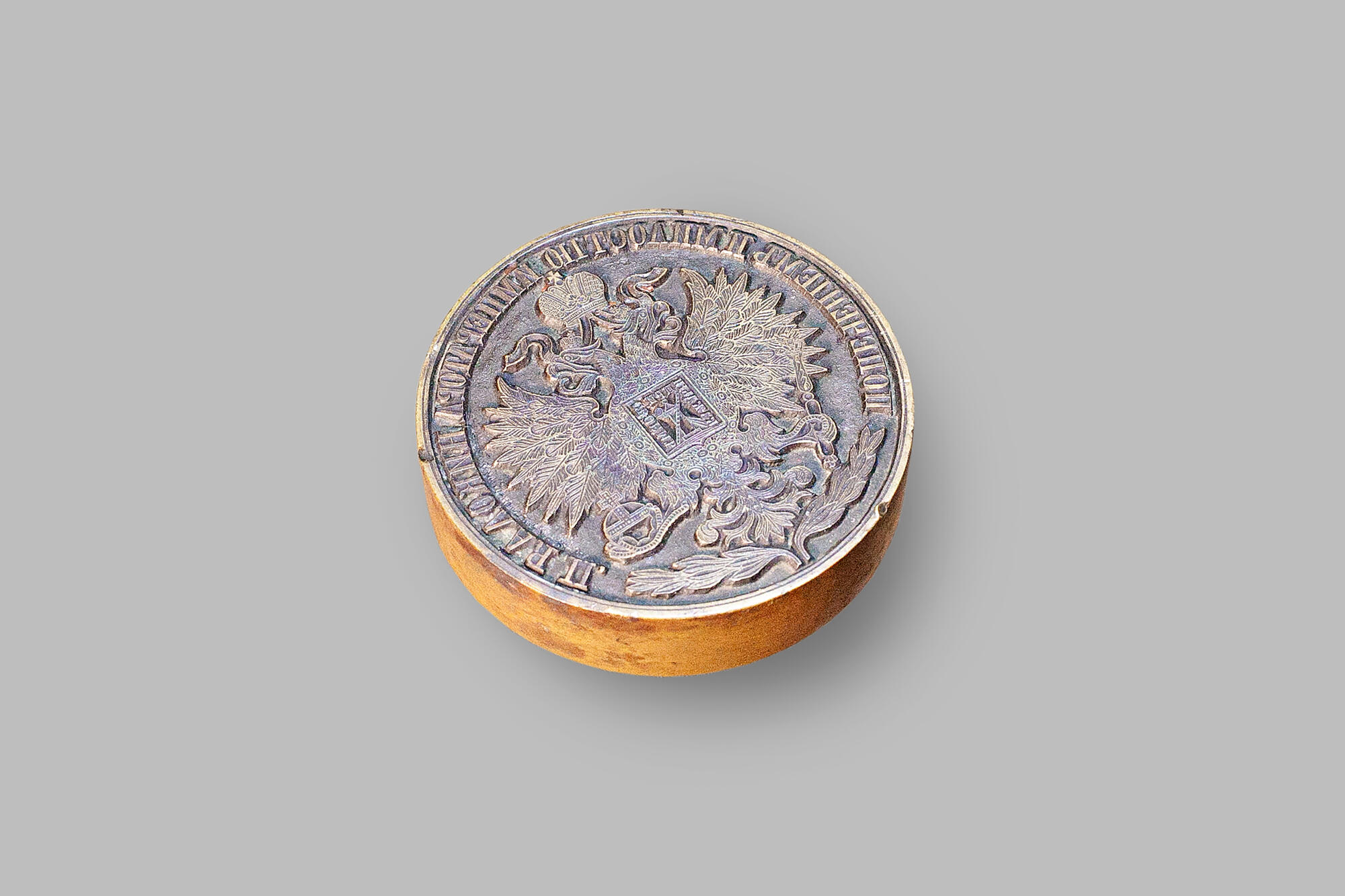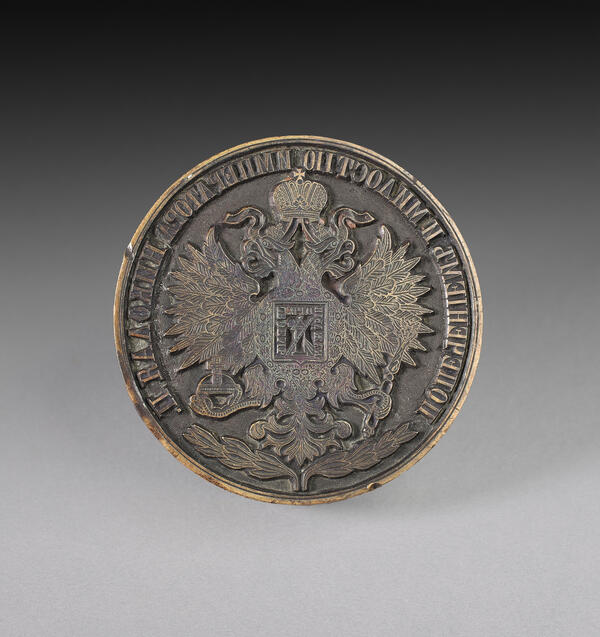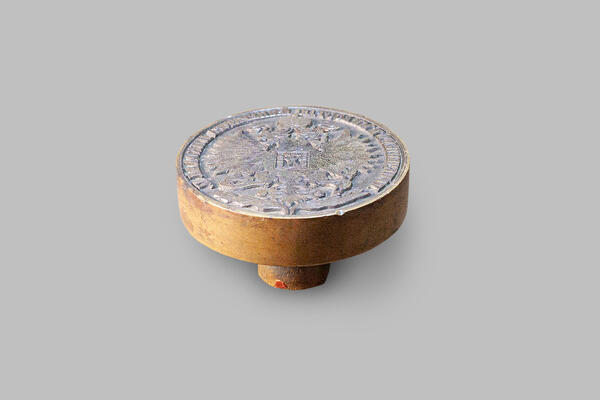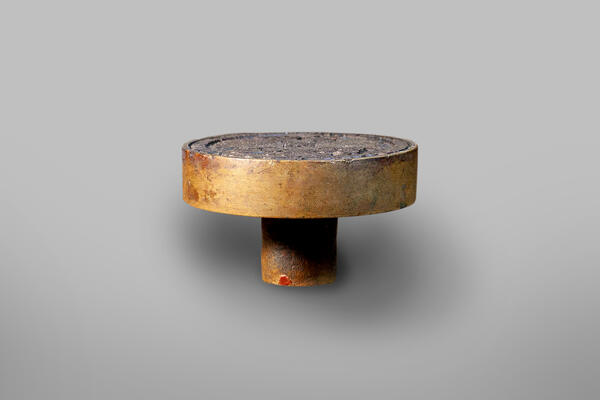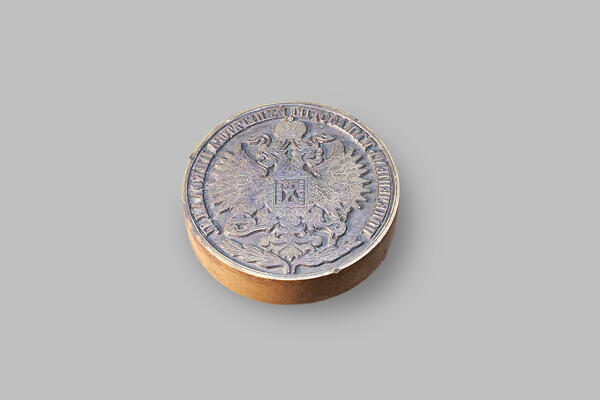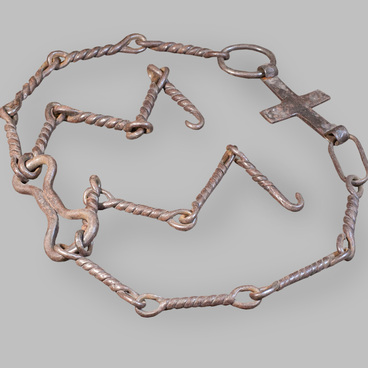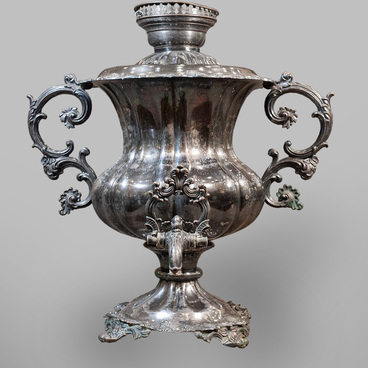The “House of Romanov and Vyatka” section of the “Diorama” Museum houses an interesting exhibit — a small seal “By the Custody and Grace of Nicholas II” depicting the coat of arms of the Russian Empire — a double-headed eagle. This seal was used to affix state acts, and to indicate their final approval by the supreme authority. Every time a new emperor ascended the throne, the seal was produced by the Ministry of Foreign Affairs based on thoroughly prepared drawings in three sizes: large, medium, and small. The small state seal was used to affix charters for granting lands, ranks, and passports issued by the Ministry of Foreign Affairs, as well as charters for a hereditary honorary title.
The title of an honorary citizen could be awarded based on distinguished service or special grounds. For example, those who reached the 14th rank in service or one of the nine highest ranks upon retirement could qualify for personal honorary citizenship. This title could be requested by representatives of all ranks after serving for the benefit of society for at least 10 years. The title of a hereditary honorary citizen could be requested by persons who had worked in the same area for at least 10 years in the title of a personal honorary citizen.
Arkady Mikhailovich Vasnetsov rightly became a hereditary honorary citizen of Vyatka. He was born into a family of a priest in the village of Ryabovo, Vyatka Governorate. He was the fifth son in the family and the younger brother of the famous artists Viktor and Apollinary Vasnetsov.
Arkady Vasnetsov studied at the Vyatka Theological School and later at the Zemstvo School. For 15 years, he was a teacher at zemstvo schools in the Urzhum Uyezd, and for 5 years — at the Vyatka Zemstvo Vocational School.
Having moved to Vyatka in 1893, Arkady Vasnetsov achieved fame as a skilled furniture artist. His favorite pastime was the manufacture of unique furniture, carved and inlaid with precious wood. Vasnetsov’s Russian-style furniture is still exhibited in Moscow museums, including the Museum of Russian Estates. It is no wonder that Viktor Vasnetsov believed that his brother Arkady had the taste, hand, and eye of an artist. This is confirmed by his letter,
The title of an honorary citizen could be awarded based on distinguished service or special grounds. For example, those who reached the 14th rank in service or one of the nine highest ranks upon retirement could qualify for personal honorary citizenship. This title could be requested by representatives of all ranks after serving for the benefit of society for at least 10 years. The title of a hereditary honorary citizen could be requested by persons who had worked in the same area for at least 10 years in the title of a personal honorary citizen.
Arkady Mikhailovich Vasnetsov rightly became a hereditary honorary citizen of Vyatka. He was born into a family of a priest in the village of Ryabovo, Vyatka Governorate. He was the fifth son in the family and the younger brother of the famous artists Viktor and Apollinary Vasnetsov.
Arkady Vasnetsov studied at the Vyatka Theological School and later at the Zemstvo School. For 15 years, he was a teacher at zemstvo schools in the Urzhum Uyezd, and for 5 years — at the Vyatka Zemstvo Vocational School.
Having moved to Vyatka in 1893, Arkady Vasnetsov achieved fame as a skilled furniture artist. His favorite pastime was the manufacture of unique furniture, carved and inlaid with precious wood. Vasnetsov’s Russian-style furniture is still exhibited in Moscow museums, including the Museum of Russian Estates. It is no wonder that Viktor Vasnetsov believed that his brother Arkady had the taste, hand, and eye of an artist. This is confirmed by his letter,
